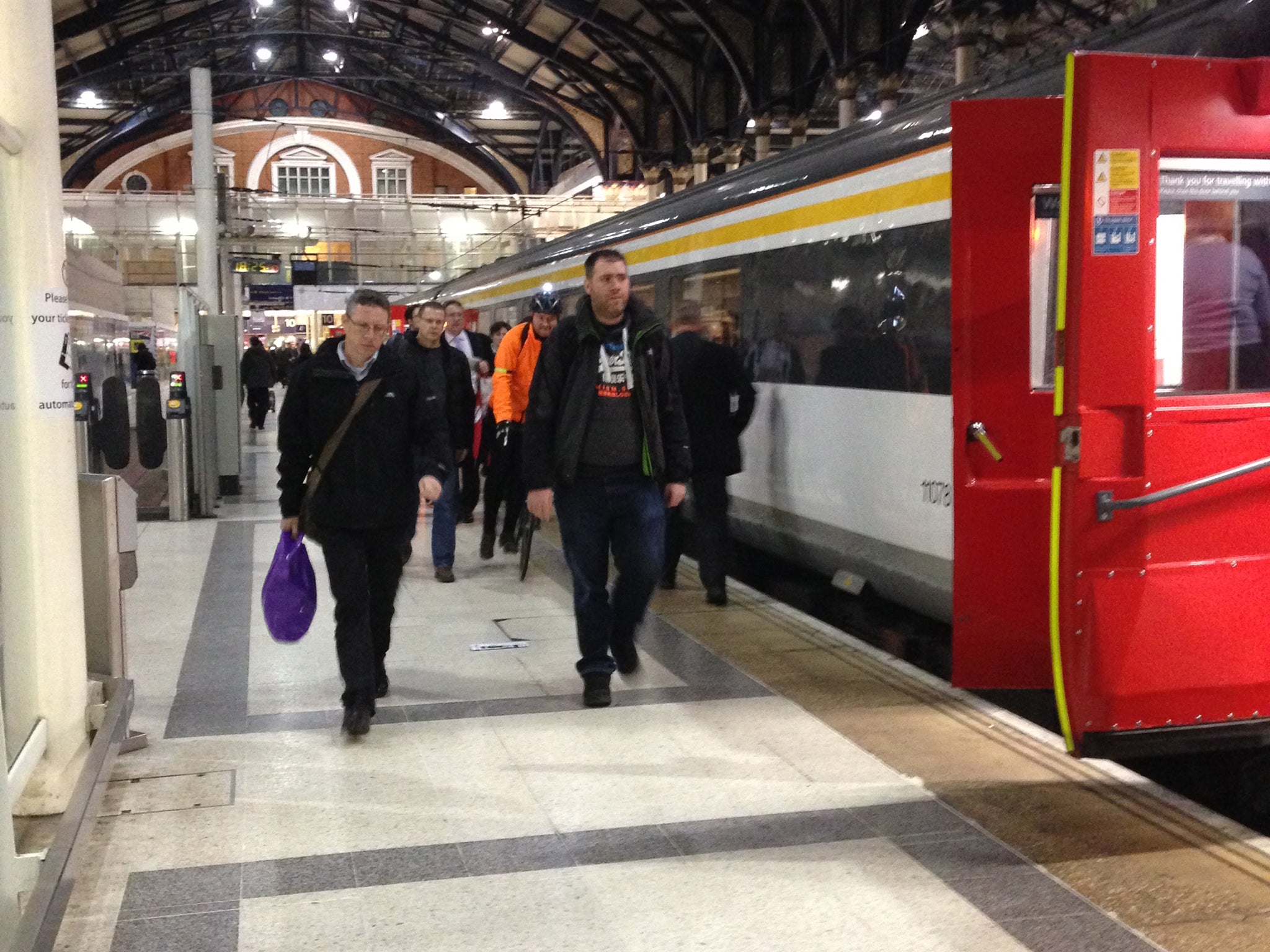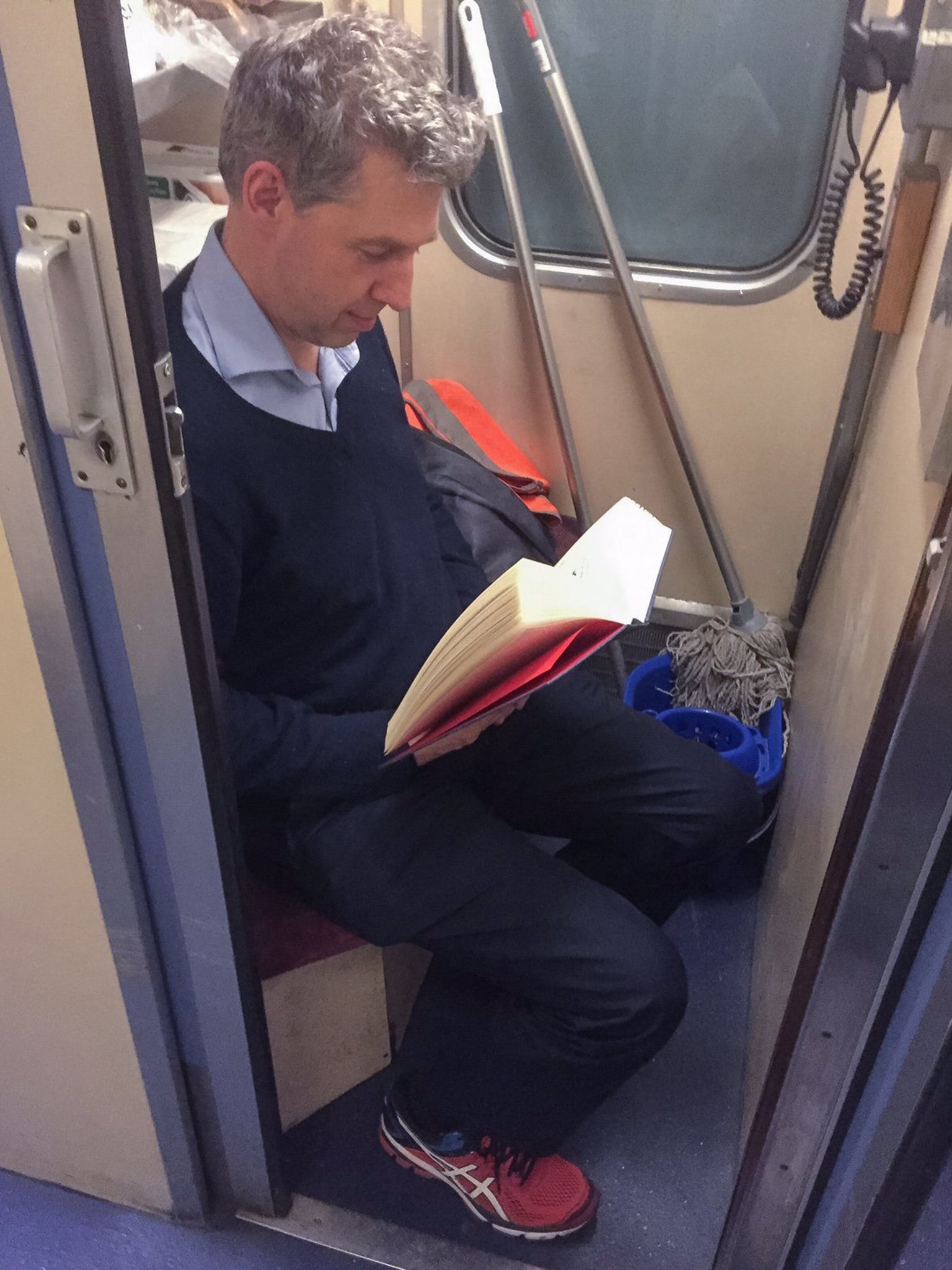London commuters describe paying £6,000 for annual train tickets and having nowhere to sit
'Generally, I’ve had the yearly season ticket, and no it’s not worth the money'

Your support helps us to tell the story
From reproductive rights to climate change to Big Tech, The Independent is on the ground when the story is developing. Whether it's investigating the financials of Elon Musk's pro-Trump PAC or producing our latest documentary, 'The A Word', which shines a light on the American women fighting for reproductive rights, we know how important it is to parse out the facts from the messaging.
At such a critical moment in US history, we need reporters on the ground. Your donation allows us to keep sending journalists to speak to both sides of the story.
The Independent is trusted by Americans across the entire political spectrum. And unlike many other quality news outlets, we choose not to lock Americans out of our reporting and analysis with paywalls. We believe quality journalism should be available to everyone, paid for by those who can afford it.
Your support makes all the difference.There is a palpable sense of anticipation at London’s Liverpool Street Station at 6pm on a Friday as hundreds of weary commuters stare expectantly at the departures board. At 6.14pm, the peak-hour 6.30pm train to Ipswich is called and a small army of suited and booted City workers stride – and in some cases sprint – towards platform 10.
By 6.24pm, it’s every man and woman for themselves: the gloves are off and the race is on. Analysts and IT directors race down the platform to the furthest carriage in the certain knowledge that it is their best chance of finding the ultimate prize: an empty seat. Bags full of M&S dinners are sent flying and an unsuspecting tourist is pushed out of the way. One strong competitor drops his newspaper at the last minute and has to stop to retrieve it, puttimg himself out of the race.
At 6.29pm, the final whistle blows and the train’s doors click shut. “Bugger it!” says a man in a suit, thumping the side of the train in frustration.
This well-dressed athletics event is the daily reality for thousands of workers on Britain’s busiest commuter routes. Passengers on the London to Ipswich peak-hour train pay more than £6,000 a year for an annual pass, but often find themselves standing or crouching in a crowded carriage. One City worker was snapped sitting in a tiny broom cupboard on the Ipswich train last week; he said it was the only place he could guarantee himself a seat, albeit one surrounded by mops.
Rather than praising his enterprising spirit, a spokesman for Abellio Greater Anglia said the cabin should not be used by members of the public. The company added that it was extending the seating capacity of its intercity services by converting staff compartments into passenger seating.
According to Paul, 43, a contractor working in the City, packed carriages are an everyday occurrence on the peak-hour train to Ipswich. “I’ve been doing this for 25 years now,” he said. “There are always people standing like sardines – it’s just the norm.”
Paul sits in his regular spot on the floor by the buffet car – a sensible choice for the hungry commuter, since it would be almost impossible to move through carriages whose aisles are blocked by standing passengers.
“Generally, I’ve had the yearly season ticket, and no it’s not worth the money,” says Paul. “But I have to get the earlier trains so I don’t have a choice.”

This is a sentiment with which fellow passenger Ed, an accountant from Stowmarket, agrees. “Yes it’s crowded and ludicrously overpriced, but there are actually fewer delays now than in the days of nationalised rail,” he said.
“I don’t think renationalisation would make much difference – it’s just one track in and out, so when there’s a problem everything just stops. People get angry, but I don’t think the conditions are so bad,” he said.
Join our commenting forum
Join thought-provoking conversations, follow other Independent readers and see their replies
Comments